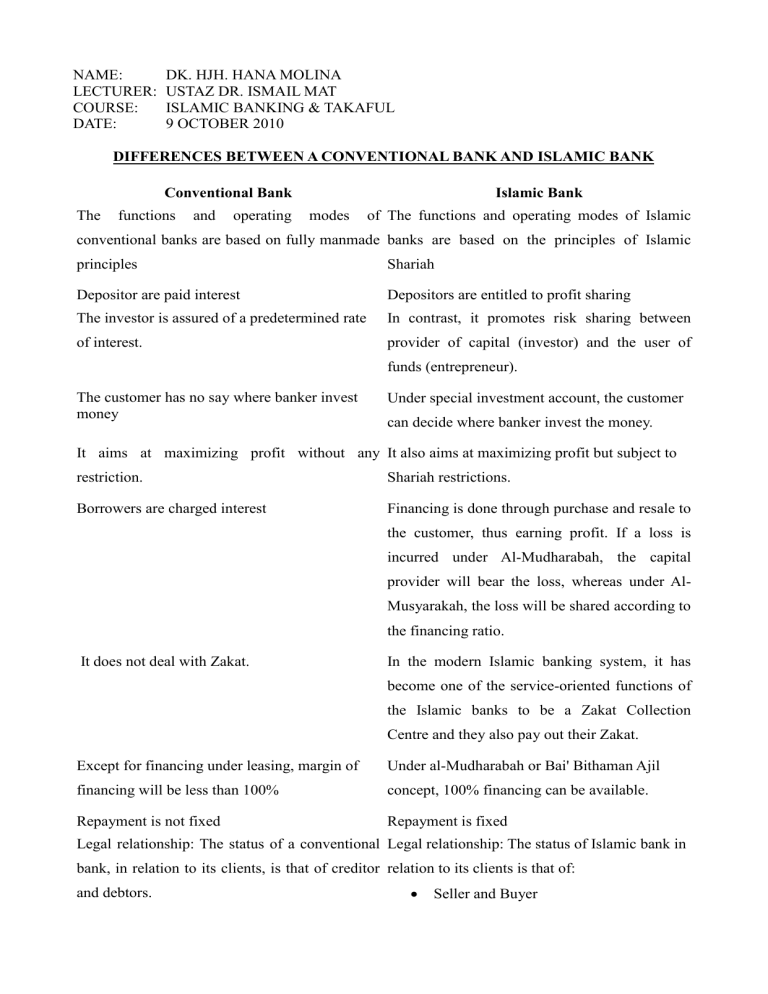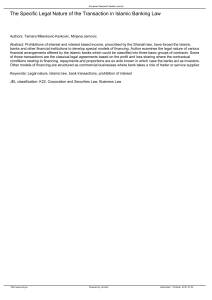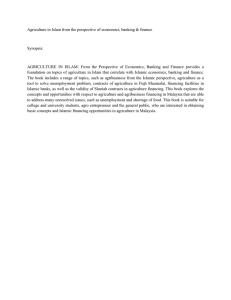
NAME: LECTURER: COURSE: DATE: DK. HJH. HANA MOLINA USTAZ DR. ISMAIL MAT ISLAMIC BANKING & TAKAFUL 9 OCTOBER 2010 DIFFERENCES BETWEEN A CONVENTIONAL BANK AND ISLAMIC BANK Conventional Bank The functions and operating Islamic Bank modes of The functions and operating modes of Islamic conventional banks are based on fully manmade banks are based on the principles of Islamic principles Shariah Depositor are paid interest Depositors are entitled to profit sharing The investor is assured of a predetermined rate In contrast, it promotes risk sharing between of interest. provider of capital (investor) and the user of funds (entrepreneur). The customer has no say where banker invest money Under special investment account, the customer can decide where banker invest the money. It aims at maximizing profit without any It also aims at maximizing profit but subject to restriction. Shariah restrictions. Borrowers are charged interest Financing is done through purchase and resale to the customer, thus earning profit. If a loss is incurred under Al-Mudharabah, the capital provider will bear the loss, whereas under AlMusyarakah, the loss will be shared according to the financing ratio. It does not deal with Zakat. In the modern Islamic banking system, it has become one of the service-oriented functions of the Islamic banks to be a Zakat Collection Centre and they also pay out their Zakat. Except for financing under leasing, margin of Under al-Mudharabah or Bai' Bithaman Ajil financing will be less than 100% concept, 100% financing can be available. Repayment is not fixed Repayment is fixed Legal relationship: The status of a conventional Legal relationship: The status of Islamic bank in bank, in relation to its clients, is that of creditor relation to its clients is that of: and debtors. Seller and Buyer Lessor and Lessee Partner and Partner Investors and Traders, Commodity Commodity example: house becomes the security example: house is the subject matter and major element A conventional bank has to guarantee all its Islamic bank can only guarantee deposits for deposits. deposit account, which is based on the principle of al-wadiah, thus the depositors are guaranteed repayment of their funds, however if the account is based on the mudarabah concept, client have to share in a loss position.




